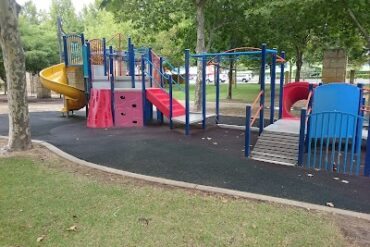A Handy Parent’s Guide to Bookstores: More Than Just Books
Hello joyful parents out there! The wonderful journey of nurturing your child’s love for books starts here. Bookstores can be a magical place, not just a destination to buy books. With the right guidance, a visit to a bookstore can be an educational, enjoyable and unforgettable experience. Let’s dive into how to make the most out of your little one’s bookstore trips!
Why Bookstores are Important for Your Child
The joy of discovering books
Taking your child to a bookstore develops a sense of exploration. With shelves stacked from bottom to top with different types of books, it’s like a mini adventure every time you visit.
Cultivate the habit of reading
Frequent trips to the bookstore can stimulate your child’s natural curiosity and mold them into lifelong readers. Surrounding them with books from an early age fosters appreciation for literature and knowledge.
Develop social skills
Many bookstores host events such as book readings, author visits and other interactive activities. Participating in these events can help sharpen your child’s social skills and boost their confidence.
Finding the Right Bookstore
Child-friendly Bookstores
When choosing a bookstore, it’s important to find a place that caters to children – this means, a store with a wide selection of children’s books, a comfortable reading area, and staff who are well versed in kid’s literature.
Support Local Bookstores
Local bookstores often have a unique charm and offer a community-focused experience. Supporting them not only encourages diversity in literature but also strengthens local businesses.
Exploring Online Bookstores
Though physical bookstores provide a unique experience, online bookstores shouldn’t be overlooked! They offer a wide range of books often at discounted prices, and you can shop anytime from the comfort of your home.
The journey of reading and knowledge sharing should be enjoyable for both you and your child, and choosing the right bookstore can shape this journey in the most beautiful way. You’re about to unlock a wonderful world for your little ones, filled with fantasies, info-packed non-fiction, creative images and new characters to meet in every book. Let’s begin this magical journey together!

Prepping for the Bookstore Visit
Creating a Wishlist
Before your visit, encourage your child to create a wishlist! This can include books they want to read or topics they’re interested in. This will make your bookstore visit more purposeful and exciting.
Plan a Regular Visit
Having a regular schedule for bookstore visits can make it a fun routine for your child. It also emphasizes that reading is an important part of life, not just an occasional activity.
Making the Most of Your Bookstore Visit
Participate in Store Events
Most bookstores organize readings, author meet-and-greets, and other fun activities. These events give your child a chance to meet like-minded peers, interact with authors, and make reading an enjoyable social activity.
Allow Enough Time
Don’t rush the experience – exploring a bookstore requires ample time. Allowing your child to take their time encourages their curiosity and makes the experience enjoyable.
Encourage Variety
Encourage your child to explore beyond their preferred genres. A bookstore offers a wide array of books – fiction, non-fiction, science, history, art, and much more. Let them discover the joy of varied reading!
In Conclusion
Visiting bookstores with your child is more than just shopping for books. It’s an enriching experience that fosters love for reading, expands horizons, and develops important social skills. Every bookstore trip is an opportunity to nurture your child’s curiosity and build a foundation of knowledge that will serve them for a lifetime. So, enjoy these magical trips with your little ones and happy reading!
Preparing for Bookstores: A Parent’s Guide
Visiting a bookstore with your child is an enriching experience. However, to optimize this outing and encourage your child’s love for reading, preparation is key. Here are five things parents should consider:
1. Understanding Children’s Interests
Understanding your child’s personal interests is critical when selecting books. It could be about space, dinosaurs, magical fairy tales, or fun-filled comics. Catering to their interests promotes a deeper engagement with the book and learning.
2. Age-appropriate Materials
It’s important to choose age-appropriate books for your child. Thoughtfully written kid’s books can help children grasp difficult concepts easily. Consult with the bookstore staff or online guidelines if you are unsure about the age-appropriateness of a prospective book.
3. The Significance of Book Quality
The durability and visual appeal of a book significantly contribute to your child’s reading experience. Brightly colored illustrations, large fonts, and sturdy pages can withstand rough handling and captivate the young reader’s attention.
4. Encourage Exploration
Encourage your child to pick books by themselves. This freedom allows them to develop their preferences and fosters a greater sense of ownership over their reading journey.
5. Pre-reading Activities
Try to engage in pre-reading activities before visiting the bookstore. This could involve storytelling, discussing favorite characters or simply sharing your own favorite books. Such activities stimulate interest in books and prepare children for their visit to the bookstore.
By taking these steps, parents can transform a trip to the bookstore into an opportunity for their children to develop a lifelong love for reading.
For more great articles please see here. For more information see here
Disclaimer
The articles available via our website provide general information only and we strongly urge readers to exercise caution and conduct their own thorough research and fact-checking. The information presented should not be taken as absolute truth, and, to the maximum extent permitted by law, we will not be held liable for any inaccuracies or errors in the content. It is essential for individuals to independently verify and validate the information before making any decisions or taking any actions based on the articles.




